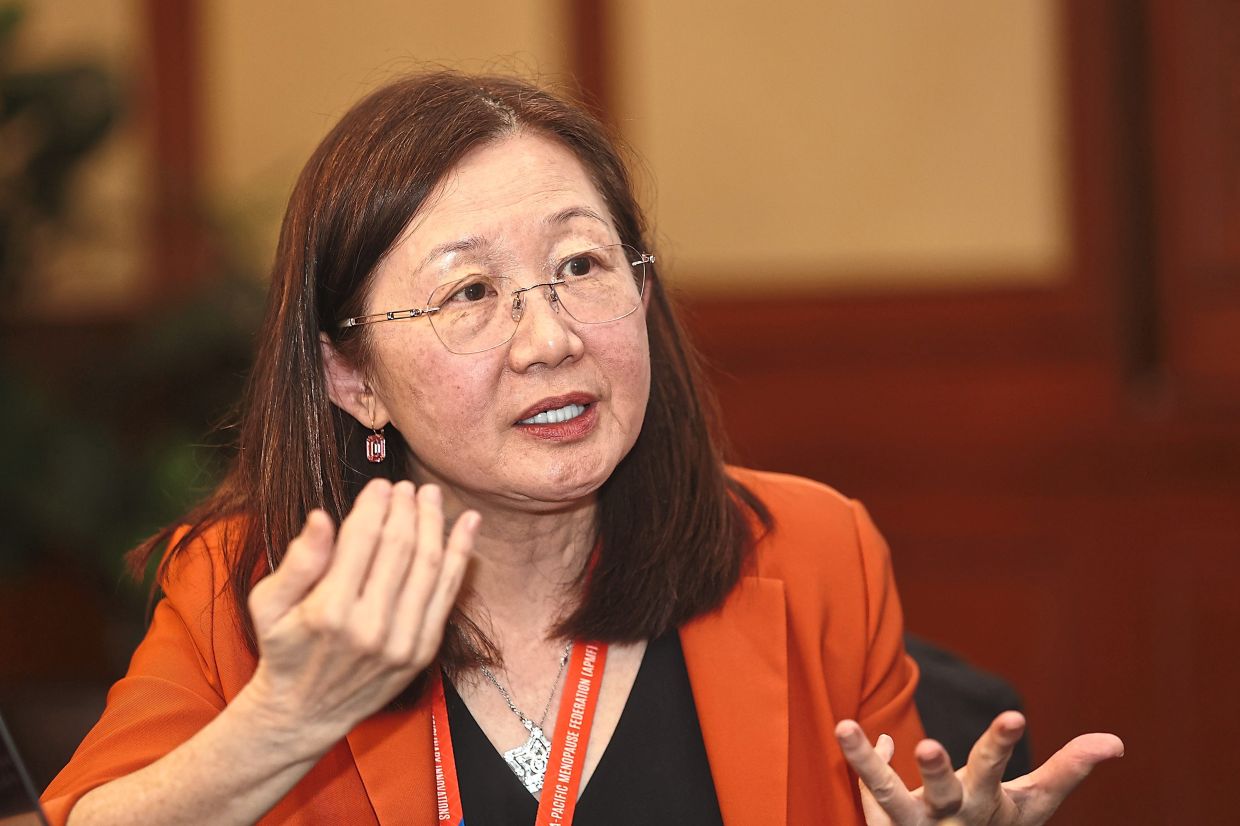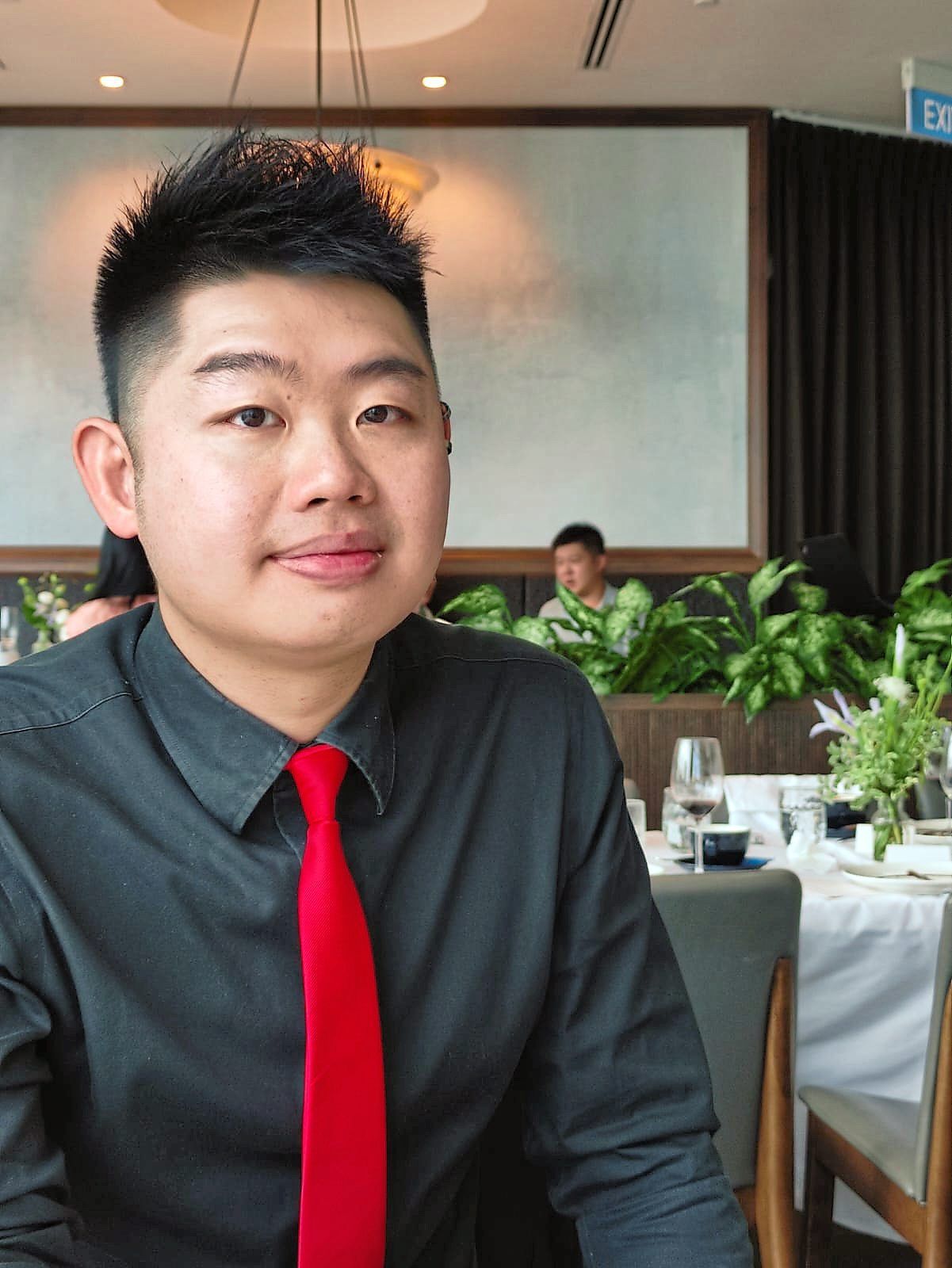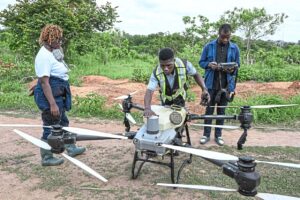TWO years ago, Davina Lee was prescribed hormonal therapy to help reduce the risk of cancer recurrence, following successful treatment almost a year after her diagnosis.
But the content creator did not expect to face another challenge. While the therapy was effective in suppressing cancer cells, it drastically reduced her oestrogen levels.
“Since starting the medication, I’ve experienced a lot of changes that are similar to what women go through during perimenopause. My period stopped completely and I started having hot flashes in the middle of the night. Not just feeling warm, but waking up drenched in sweat, needing to wipe myself down and change my clothes.
“Not only did the people around me not understand what I was going through, but even I didn’t really know what was happening myself. I was trying hard to make sense of it all.”
Although her symptoms were caused by treatment rather than natural perimenopause, Lee felt she had endured many of the same challenges faced by women in their mid 40s to early 60s.
While no official figures exist for Malaysia’s perimenopausal and menopausal population – whether from natural biological changes or medical causes – experts agree that the number will rise sharply as the nation approaches ageing status.
However, the country has yet to realise menopause as a top priority; whether in workplace policy, healthcare infrastructure, mitigation measures, or public awareness.
In comparison, Australia’s latest budget, for instance, allocates more than A$573mil (RM1.6bil) to its universal healthcare, which includes specific support for menopausal women.
Correspondingly, there is also a growing trend of an expanding market catering to menopausal women – the global menopause market, projected to reach US$89.3bil (RM388.5bil) by 2032, is fuelled by growth in dietary supplements and health apps.
Still, Malaysian Menopause Society president Dr Ho Choon Moy says while the matter is not entirely ignored in Malaysia, there has yet to be a coordinated national action plan.
“Menopause-specific policies are still in the early stages, but what is needed next is a coordinated national action plan, bringing together government, academia, civil society and industry to prioritise menopause not just as a medical issue, but a public health and economic imperative.”
What we have now
Dr Ho says it cannot be denied that systemic changes are beginning to take shape – the Health Ministry’s preventative health push under the Agenda Nasional Malaysia Sihat (ANMS) includes screenings and lifestyle counselling that could encompass perimenopausal and menopausal care.
During an interview at the recent Asia-Pacific Menopause Federation 10th Scientific Meeting in Kuala Lumpur, she notes that the National Women’s Health Blueprint is “still evolving”, alongside growing advocacy to treat menopause as a key life stage requiring proactive care rather than reactive treatment.
“In the private sector, some hospital groups and women’s clinics are establishing dedicated menopause services, including hormone clinics and lifestyle support.”
Dr Ho notes that Malaysia is also seeing promising albeit early signs of multi- stakeholder collaboration such as public- NGO partnerships.
For instance, Universiti Malaya and Universiti Sains Malaysia are partnering with pharmaceutical companies to research botanical treatments for menopausal symptoms.
“Pharmacy chains are also teaming up with digital health platforms to deliver education and screening for midlife women.”
Malaysia is also actively engaged on the international stage, having led the Asia Pacific Menopause Federation for the past two years and contributing to the development of guidelines and regional knowledge exchange.
Yet a national framework is still lacking, particularly for equitable access in rural and low-income areas.
“For example, fertility testing is not covered by private insurance. Now, some insurers are beginning to consider midlife female health screenings [such as bone health, cardiovascular risk] in wellness packages.”
Dr Ho says a comprehensive approach which includes revamping workplace policies is also crucial as more women work into their 50s and 60s, with menopause still seen as “taboo” by many employers.
“Menopause is no longer a private issue. There are already some multinationals and women-led SMEs starting to adopt menopause-inclusive practices such as flexible hours, access to medical leave, or ergonomic support.
“In countries like the UK, menopause is being pushed into labour policies. Malaysia has yet to follow suit, although discussions on gender-sensitive health policies are growing.”
Without workplace support, midlife women may reduce their hours or exit the workforce entirely, and the economy will lose valuable experience and leadership.
“This is a missed opportunity in a rapidly ageing population,” Dr Ho says.
Mind matters
Lee says that when she confided in close friends about her struggles, one of them wondered if she was overreacting – even questioning whether what she felt was “real”.
“I don’t blame him for doubting me. Because if I was confused, it must have been even harder for him to understand why, at 37, I was acting that way,” she says.
The challenges extended into her professional life. While her colleagues were initially supportive, covering for her during panic attacks and offering comfort, the constant need for assistance began to weigh on her.
“At work, during the first few times I had panic attacks, my boss and colleagues were kind enough to cover for me or comfort me. But after a while, I started to feel embarrassed that it kept happening and that I always needed them to pick up my slack,” she recalls.
Psychiatrist Dr Jason Ng says Lee’s experience reflects a deeper, systemic gap in the way healthcare approaches menopause – with a heavy focus on physical symptoms and quick medication, but less on mental health.
“Both mental health and reproductive health services tend to be undervalued and under-resourced, with centres being quite few and far in between, and even rarer outside of city centres.
“I believe that a good way forward is a multidisciplinary approach – integrated clinics for the menopausal period involving mental health clinicians as well as general practitioners or gynaecologists.
“Psychoeducation is key, and this should be adapted to take into account societal and cultural factors in order to engage the community respectfully.”
Dr Ng suggests adding mental health screening at menopause clinics and using digital platforms or telepsychiatry to expand affordable access.
He also calls for a cultural shift in how society views ageing and femininity, beginning with education and public awareness.
“The key message would be the normalisation of difficulties in menopause and ageing, and that mental health is an equally important part of the menopause transition. Clinicians need to be aware and take into account the background of the patient, tailoring their explanations and approaches to them.
“This might include differences in religious, ethnic and familial beliefs around ageing, the role of women, and mental health disorders. Education and psychological interventions can be adapted to their views, and the engagement of cultural role models in the community such as faith leaders, traditional healers and community elders are also important, as they can be allies rather than enemies.”
Health before economy
Sang May Lee, 59, a member of the SeniorsAloud NGO which promotes a healthy lifestyle among senior citizens, says different women have different menopause journeys, with some facing severe symptoms and heightened cancer risks due to hormone imbalances and age.
“And from the hormone imbalance and age factor, the risk of cancer may increase. So maybe some medical examinations or early detection tests should be made mandatory and free of charge for all females above 40 years old,” Lee says.
She says following the Covid-19 pandemic, medical insurance has become too expensive.
“So if the government is really sincere in wanting to protect the older, menopausal women workforce, the policymakers should seriously look into this matter. Healthcare needs to be easily accessible but also affordable.
“Health comes before the economy. When older women in the workforce have regular medical checkups, specifically related to menopause, and get proper medical attention and advice, they will stay healthier and need not exit the workforce early.
“It will be beneficial to the country in the long run too. It is a better investment in older women’s health rather than giving out subsidies.”
Overlooked opportunities
Beyond workplace reform, Dr Ho say there is also untapped potential for industries to meet the needs of this growing demographic.
She points out that Malaysia’s wellness and pharmaceutical sectors are beginning to spot opportunities in an area long overlooked – the unmet needs of menopausal women.
The growing interest spans multiple segments, from traditional remedies to digital health tools.
“Local brands are capitalising on culturally accepted botanicals like kacip Fatimah and tongkat Ali, often marketed for libido, mood, or vitality. However, product quality and evidence can be variable,” she says.
Technology is also making inroads with telemedicine platforms that are now offering consultations related to menopause.
“Meanwhile, health-tracking apps including those focusing on hot flushes, mood, or sleep, are beginning to penetrate the market,” Dr Ho adds.
Dr Ho also says that the consumer product space is evolving in parallel.
“We’re seeing a rise in vaginal moisturisers, supplements with botanicals, phytoestrogens and probiotics tailored to midlife health.”
At the same time, changing consumer expectations are also shaping the market.
“There is growing demand for ‘natural’ or ‘clean-label’ options, with consumers preferring halal-certified, plant-based, or traditional solutions – provided they are backed by safety data,” Dr Ho notes.
Her assessment aligns with a recent Yahoo Finance data report, which shows Asia-Pacific accounting for 39% of global growth in the women’s health and beauty supplements market, including products for midlife and menopausal women.
Demand for treatments targeting symptoms like hot flushes is expanding rapidly, supported by greater awareness and acceptance of menopause as a key health concern.








